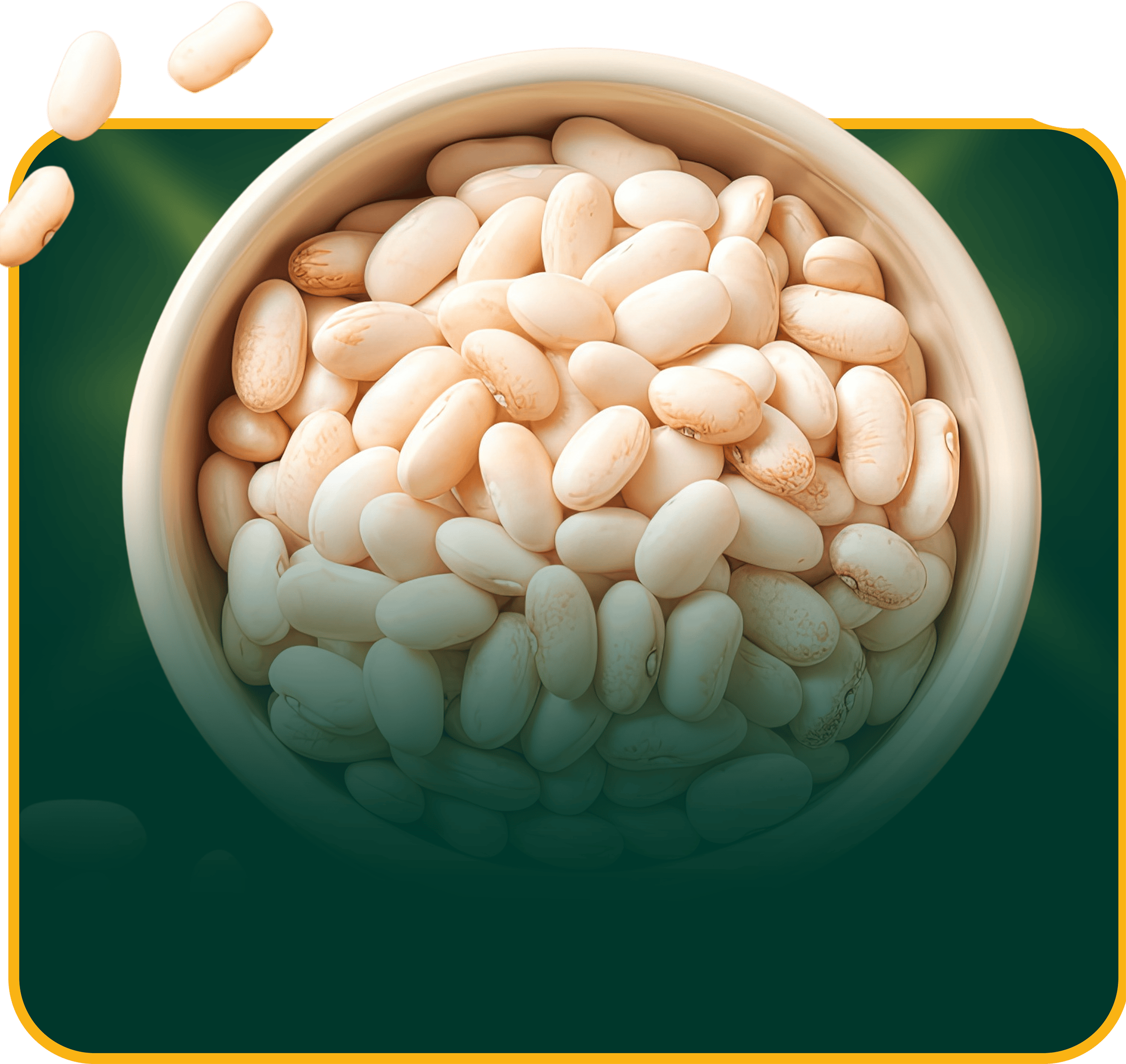
Lupini Beans
Lupini beans, also known as lupins, are legumes known for their high protein content and distinctive, nutty flavor. They have a firm texture and are commonly found in Mediterranean cuisine, often served as a snack or appetizer. Lupini beans are usually yellow or white and are typically soaked and fermented before consumption to reduce their natural bitterness and make them more palatable.

Lupini beans are typically planted in early spring, as they prefer cooler temperatures and well-drained soil. They require a sunny location for optimal growth. Lupini beans are generally ready for harvest in late summer to early autumn, about 90 to 120 days after planting. The beans are harvested when the pods are dry and the beans inside are fully mature. After harvesting, lupini beans need to be soaked and fermented to remove their natural bitterness before they are suitable for consumption.
Eating lupini beans can offer various health benefits thanks to their nutrient-dense composition. The high protein content supports muscle growth and repair, while the dietary fiber promotes healthy digestion and can help prevent constipation. The vitamins and minerals in lupini beans play roles in energy production, cardiovascular health, and maintaining healthy bones and skin. The antioxidants present in lupini beans also help protect cells from oxidative damage and inflammation.
Lupini beans are highly nutritious, offering a significant source of plant-based protein, dietary fiber, and essential nutrients. They are particularly rich in protein compared to other legumes, making them a valuable addition to vegetarian and vegan diets. Lupini beans are also high in dietary fiber, which aids in digestion, supports heart health by lowering cholesterol, and helps regulate blood sugar levels. Additionally, they contain important vitamins and minerals such as B vitamins, iron, magnesium, and potassium, contributing to overall health and well-being.
